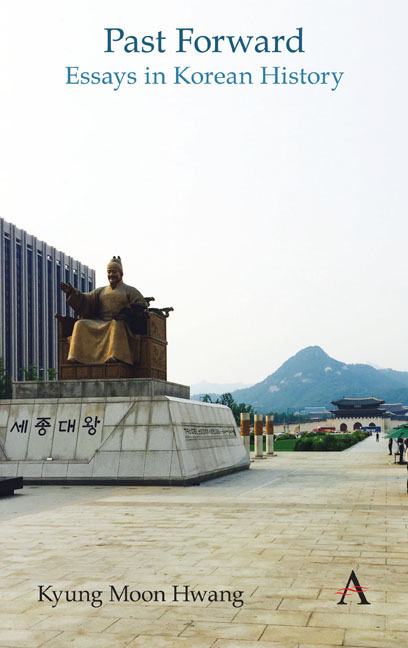Book contents
- Frontmatter
- Contents
- List of Figures
- Foreword
- Chronologies of Korean History
- Themes
- Acknowledgments
- Note on Romanization and Spelling
- Part I Circulating History
- Part II Durable Traditions
- Part III Ancient Remains
- 16 The Beginnings of Korean History
- 17 Ancient and Present Gaya
- 18 Empress GI
- 19 Speaking of Northern Korea, not North Korea
- Part IV Dynastic Depths
- Part V Modern Origins
- Part VI Challenges of Nationhood
- Part VII History Makers
- Part VIII External Presences
- Part IX Trials of Modernization
- Part X Gripped by the Past
- Index
16 - The Beginnings of Korean History
from Part III - Ancient Remains
- Frontmatter
- Contents
- List of Figures
- Foreword
- Chronologies of Korean History
- Themes
- Acknowledgments
- Note on Romanization and Spelling
- Part I Circulating History
- Part II Durable Traditions
- Part III Ancient Remains
- 16 The Beginnings of Korean History
- 17 Ancient and Present Gaya
- 18 Empress GI
- 19 Speaking of Northern Korea, not North Korea
- Part IV Dynastic Depths
- Part V Modern Origins
- Part VI Challenges of Nationhood
- Part VII History Makers
- Part VIII External Presences
- Part IX Trials of Modernization
- Part X Gripped by the Past
- Index
Summary
In January 1896, the Korean government skipped over the final months of 1895 in order to adopt the Western solar calendar. It even took a new reign name for the monarchy, Geonyang (“Establishing the solar [calendar]”), to mark this occasion, as if to signal the rebirth of the country in the modern world. But when was Korea really born? In other words, when did Korean history begin?
As South Koreans continue to wrestle with competing interpretations of their history, it seems a good time to consider this basic question, even though it actually receives little attention. Perhaps this is because most Koreans do not believe there is any question about Korea's origins, or because of the opposite, that this issue is too contentious and controversial. But it is indeed worth exploring because it makes us think about how to conceive of “Korean history” itself. So below are some candidate dates for the beginning of Korean history, as well as the pros and cons regarding their historical validity:
2333 BCE. The fallback, conventional date, when the mythical founder of the Korean people, Dangun, was said to have been born on Mount Baekdu to establish the ancient kingdom of Joseon.
Pro: It is a good story that emphasizes Koreans’ common ancestry, an ancestry with ties to the heavens and dating back nearly 4,500 years, which makes it easy to just round up Korea's age to a convenient 5,000 years. With no evidence, the tale leaves little room for countering claims.
Con: There is no evidence. This story first appears in a book of supernatural tales from the thirteenth century, 3,500 years after the supposed event. It is also a bit embarrassing that any nation would consider this kind of account as anything but a fairy tale.
37 BCE. This was when the Goguryeo kingdom, one of the earliest polities on the peninsula with support from actual historical records, supposedly began through the birth of its founder, Jumong, who is said to have emerged from an egg.
Pro: Goguryeo is a good candidate for status as the originating state in the territory that became Korea, since the earliest Chinese accounts of various “barbarians” on the peninsula specifically describe Goguryeo as one of the most impressive (and colorful) groups.
- Type
- Chapter
- Information
- Past ForwardEssays in Korean History, pp. 45 - 47Publisher: Anthem PressPrint publication year: 2019



